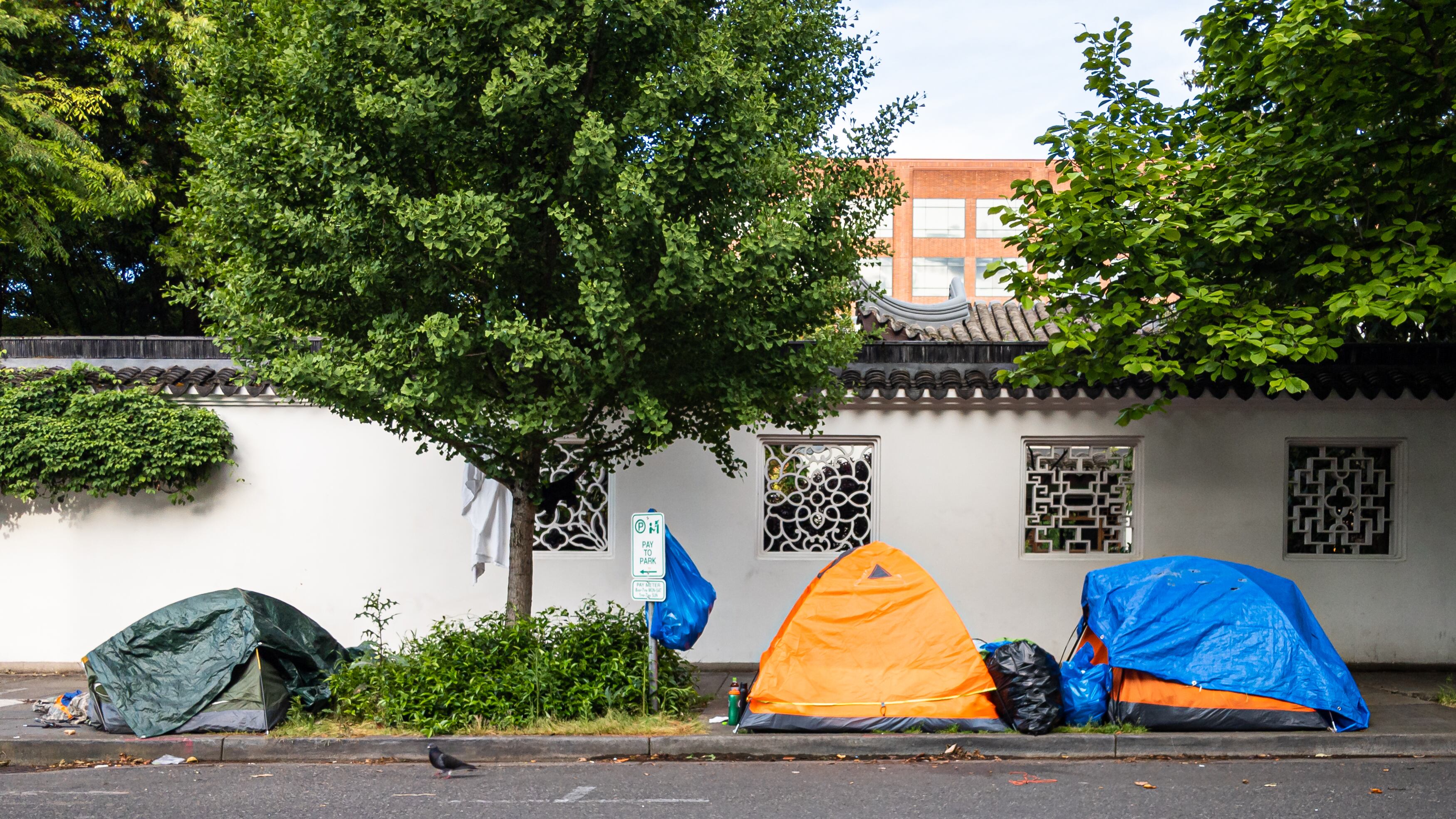Renewed pressure from community activists has persuaded Oregon lawmakers to revive a bill that would effectively end homeless camp sweeps.
House Bill 2367 will get a hearing in the House Judiciary Committee on April 13, after an initial hearing was canceled in early March. The bill faces intense opposition from several city governments and is not expected to pass this session.
A statement from Stop the Sweeps PDX, one of the bill's primary supporters, hailed the hearing announcement in a statement April 8.
Benjamin Donlon, a member and organizer of the advocacy group, says HB 2367 is "one of the few bills that has the potency to address the criminalization issue with homelessness."
He says opponents of the bill "fear it will be a takeover of the parks where people will desecrate public areas and will have open drug use and pollute the rivers," but he says he finds that "kind of ludicrous. I think people have a healthy amount of respect for the environment, whether housed or unhoused."
Paul Boden of the Western Advocacy Regional Project, a proponent of the bill, tells WW that, in short, the bill "would stop the historical pattern and practice of criminalizing people that are simply standing still, standing, sleeping or eating in a non-obstructive manner in public places."
"If you're standing there and you ain't blocking anyone's right to public space, they can't criminalize you anymore," Boden says.
In Portland, removal of homeless campsites by the city resumed last year after a pause at the outset of the COVID-19 pandemic. Those sweeps are ramping up again this spring: In the last week of March, the city swept nine campsites, an increase from the colder months but a much smaller number than is typical for pre-pandemic Portland.
A spokesperson for the city's Office of Management and Finance, Heather Hafer, declined to comment on the ongoing legislation but said that prior to the pandemic, the city would typically remove 50 campsites per week. Now, that number has dropped to an average of five to seven per week, according to Hafer.
Boden says over 130 people were ready to testify for the bill's originally scheduled hearing in March when it was abruptly canceled.
"So a mad scramble ensued," Boden says of the cancellation. "Eighty testimonies and 130 written testimonies that had been submitted, 70 people that had signed up to testify—that all got erased. And then a lot of emails, a couple of articles, and then, voila! Out of the blue it's been rescheduled to the 13th."
But he's not entirely happy with the new hearing and the time allocated for it: "We're scheduled for 15 minutes, I shit you not."
Rep. Wlnsvey Campos (D-Aloha) is the bill's chief sponsor, and is backed by Reps. Khanh Pham (D-Portland), Dacia Grayber (D-Tigard), and Maxine Dexter (D-Portland).
"This bill does not allow people to defecate or urinate publicly, it doesn't grant folks experiencing houselessness any special rights, it doesn't seek to let mayhem run loose," Campos tells WW. "It just seeks to make sure that we're treating folks with dignity."
Campos admits getting the bill passed will be an "uphill battle."
"Knowing that we're moving folks just place to place, that doesn't do anything," Campos says.

